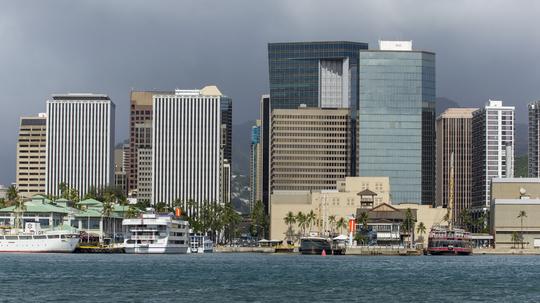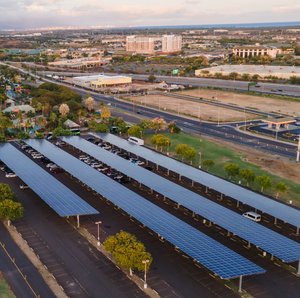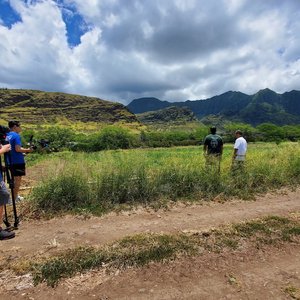
A national City Clean Energy Scorecard recognized the City and County of Honolulu as one of three “most improved” cities nationwide in climate action, thanks in part to clean energy and transportation projects that mitigate climate change, improve resiliency, support equity, and aid in economic recovery, the city recently announced.
The scorecard surveys 100 major U.S. cities and is reported annually by the American Council for an Energy-Efficient Economy, an independent nonprofit research organization that develops policies to reduce energy waste and combat climate change.
The scorecard ranks cities across five energy and equity-based policy areas including local government operations, community-wide initiatives, buildings, energy and water utilities, and transportation.
Honolulu was the only city to improve its scores in all policy areas, and is now ranked 24, up from 47 in 2019 and 41 in 2020.
“Increasing our scorecard ranking by such a significant amount is exciting progress that couldn’t have been achieved without the collaborative vision and commitment of community, City leadership and departments,” Matthew Gonser, director and chief resilience officer of the Office of Climate Change, Sustainability and Resiliency, said in a statement. “We are inspired by the innovation of the cities included in this report, and appreciate the provided recommendations. Honolulu has made great progress in recent years, and as we look ahead to 2022, we know we can accomplish so much more together.”
Working with community partners and across city departments, the City said in the announcement that recent initiatives include streamlining parking requirements, expanding safe and clean transportation options for residents, upgrading its facilities through an Energy Service Company partnership, adopting EV and PV-ready energy codes for homes and businesses, bringing electric vehicles into the City fleet, and measuring energy and water use in City facilities.
The collaborations also work toward statewide climate action goals and local goals in the Oahu Resilience Strategy and Climate Action Plan, which was released in April 2021 and details additional steps Oahu can take to reduce greenhouse gas emissions by 45% in some sectors over the next five years.



